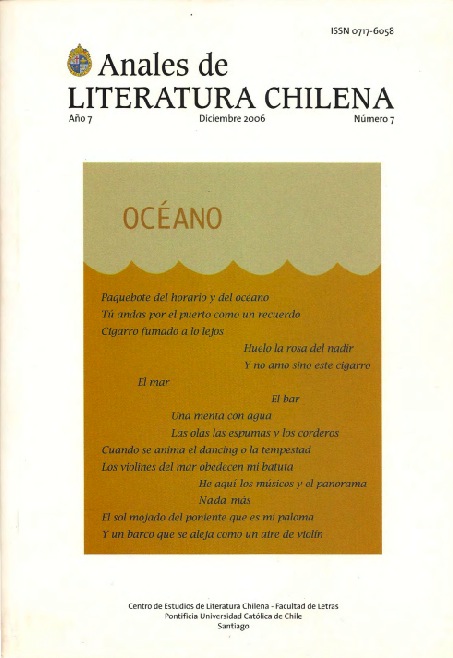Isolde Reuque or Rigoberta Menchu, Twenty Years Later: The Colonial Matrix of Testimony
DOI:
https://doi.org/10.7764/ANALESLITCHI.07.09Keywords:
Isolde Reuque, Rigoberta Menchú, Florencia Mallon, testimony, inquisitio, speaking roles, colonialismAbstract
This essay analyzes the testimony Una flor que renace: autobiografía de una dirigente mapuche (A Flower Reborn: Autobiography of a Mapuche Leader) (2002), published by the Chilean historian, Florencia Mallon. It is based on an interview with Isolde Reuque centering on the debates around the publication of another canonical testimony: Me llamo Rigoberta Menchú (My Name is Rigoberta Menchú) (1983). As a literary genre, testimony has a colonial matrix that has shaped itself out in the process begun by the Western expansion to America and which for that reason I have named inquisitio. Inquisitio presupposes the monolithic roles of speaker and listener: someone has the right to ask questions and someone else has the right to answer but not the right to ask. This process must be understood in strict correlation with another one, that of “colonial semiosis,” which froze the roles of speaker and listener by defining Europe geopolitically as the place of “the self”—the privileged speaker, a hierarchically superior one—and by naturalizing America as the receptive and passive listener, the Other.
Downloads
Downloads
Published
How to Cite
Issue
Section
License

This work is licensed under a Creative Commons Attribution-NoDerivatives 4.0 International License.


